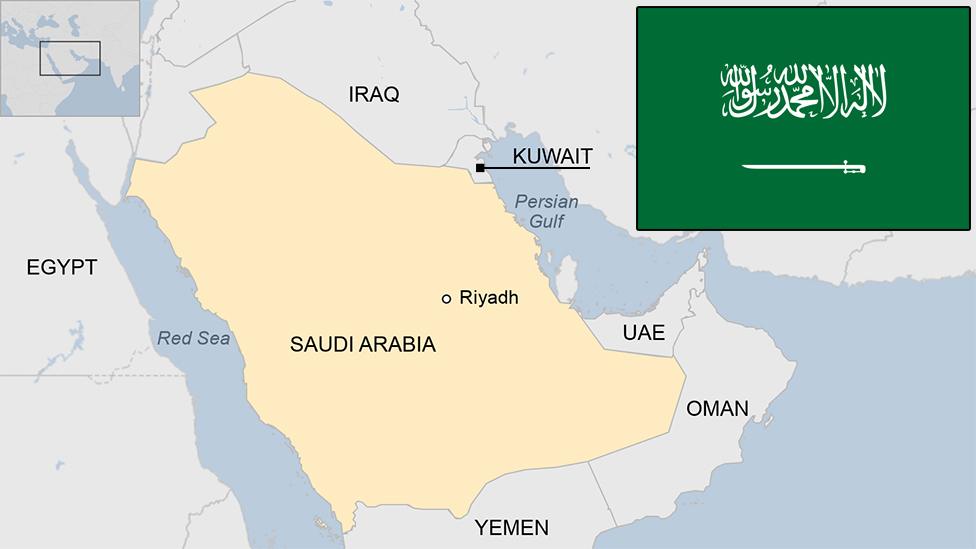Saudi Arabia's new King Salman promises continuity
- Published
King Salman bin Abdulaziz Al Saud: "We will never deviate from our constitution"
Saudi Arabian King Salman has pledged continuity, hours after his accession to the throne following the death of his half-brother, King Abdullah.
The new king moved swiftly to appoint heirs and ministers, including one prince from the ruling dynasty's third generation.
King Abdullah died overnight, weeks after being admitted to hospital with a lung infection.
He was buried in an unmarked grave in Riyadh, following Friday prayers.
The practice is meant to prevent veneration, in line with the traditions of Wahhabism, the ultra-conservative form of Sunni Islam followed by the kingdom's ruling family.
Saudi Arabia's significance to the rest of the world explained - in 60 seconds
King Abdullah's body was wrapped in a shroud, and buried in a public cemetery after prayers attended by Gulf heads of state and some foreign leaders.
'Correct policies'
Within hours of acceding to the throne, King Salman, 78, vowed to maintain the same policies as his predecessors.
"We will continue adhering to the correct policies which Saudi Arabia has followed since its establishment," he said in a speech broadcast on state television.
The new king wrote on his official Twitter account, external: "I ask God to help me succeed in my service of the dear [Saudi] people."

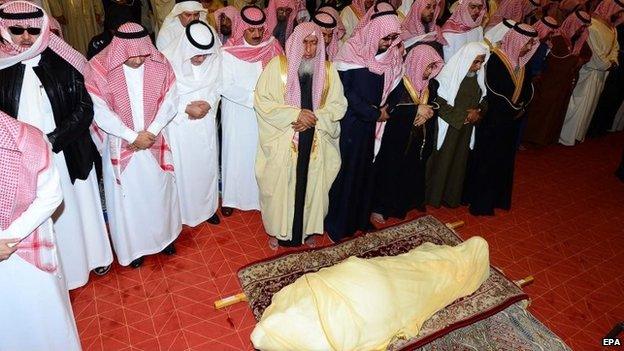
Funeral prayers were performed at a mosque before the burial
He named another of King Abdullah's half-brothers, Muqrin, who is in his late 60s, as the new crown prince.
Interior Minister Prince Mohammed bin Nayef, 55, was appointed deputy crown prince, making him second in line to the throne and effectively smoothing the line of succession for years to come.
Deputy Crown Prince Mohammed is a grandson of King Abdulaziz, usually referred to as Ibn Saud, the founder of modern Saudi Arabia. The crown has so far passed between Ibn Saud's sons, but few are still alive.
King Salman also appointed his own son, Mohammed bin Salman, as defence minister. Other ministers, including foreign, oil and finance, were kept in place, state TV reported.

Saudi burial customs: Martin Asser, BBC Arabic
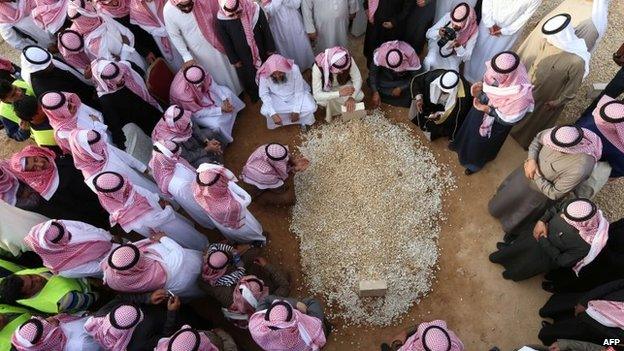
Mourners gathered around King Abdullah's unmarked grave
The funeral of a Saudi monarch is a low-key affair, rooted in the kingdom's ultra-conservative religious practice.
One of the world's wealthiest monarchs - who in life resided in lavish palaces - is buried in an unmarked grave in a public cemetery.
Protocol permits no official mourning period, government offices stay open and flags remain at full mast.
The reason is that the House of Saud practises one of the strictest codes of Islam, in which followers try to emulate the behaviour of the Prophet Muhammad and avoid anything seen as un-Islamic "innovations".
Public displays of grief are frowned upon by a religious establishment which views every aspect of life and death as a submission to God's supreme will.
That means funerals are very puritanical in character, with a strong impression of egalitarianism in death.

Frank Gardner examines the legacy of Saudi Arabia's King Abdullah
King Abdullah came to the throne in 2005 but had already been Saudi Arabia's de-facto leader for 10 years because his predecessor, King Fahd, had been debilitated by a stroke.
Abdullah was said to be aged about 90. He had suffered frequent bouts of ill health in recent years, and King Salman had recently taken on the ailing monarch's responsibilities.
US President Barack Obama paid tribute to Abdullah as a leader who "was always candid and had the courage of his convictions". Vice-President Joe Biden said he would lead a delegation to Riyadh to pay respects.
Israeli President Reuven Rivlin praised Abdullah's "grounded, considered and responsible leadership", while Iran said its foreign minister would travel to Riyadh for an "official ceremony" on Saturday.

Analysis: Frank Gardner, BBC security correspondent
In Saudi terms, King Abdullah was a reformer, making princes pay their phone bills and giving women their first ever seats in the high-level consultative council. The new King Salman, a staunch conservative, has put paid to any thoughts of radical reforms on his watch with his first speech as monarch.
Saudi Arabia faces a number of challenges. The first is ensuring the succession passes smoothly. Then there is the ongoing threat from jihadists, both at home and across its borders - Saudi Arabia is sandwiched between the Islamic State (IS) group to the north and al-Qaeda in Yemen to the south.
The government has yet to find a way to cope with mild calls for reforms, and is abusing anti-terror laws to silence reformers and punish its critics.
Longer term, it faces a growing unemployment problem. About half the population is under 25 and there are not enough meaningful jobs for young Saudis.
But the country does at least have oil in its favour. Saudi Arabia is one of the very few exporting countries to still make big margins on production and exploration - putting it in a powerful position on the world stage.
Analysis: Turbulent times ahead

Meanwhile, UN Secretary-General Ban Ki-moon praised Abdullah's work "to promote dialogue among the world's faiths".
Amnesty International's Salil Shetty: "Saudi [Arabia] has got away with much more than any other state"
However, human rights groups said Saudi Arabia's human rights record had been poor under Abdullah.
Amnesty International spokesman Neil Durkin described Abdullah's human rights legacy as "disastrous", saying that "endemic torture in police cells and in prisons" remained.
Meanwhile, Human Rights Watch's deputy Middle East director Joe Stork said that after 2011, the "authorities subordinated the king's reform agenda to a campaign to silence peaceful dissidents".

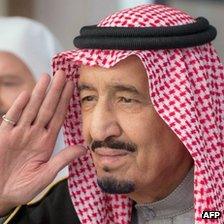
King Salman
Born on 31 December 1935
Son of Princess Hassa al-Sudairi
Governor of Riyadh from 1955-1960 and 1963-2011
Appointed defence minister upon death of his brother Crown Prince Sultan
Owns important stake in one of the Arab world's largest media groups
- Published28 October 2015
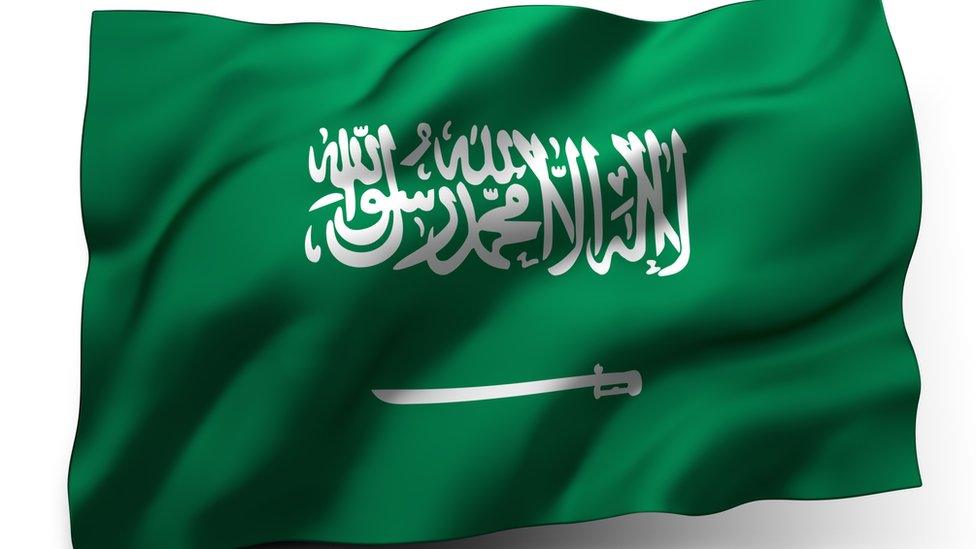
- Published10 March 2020
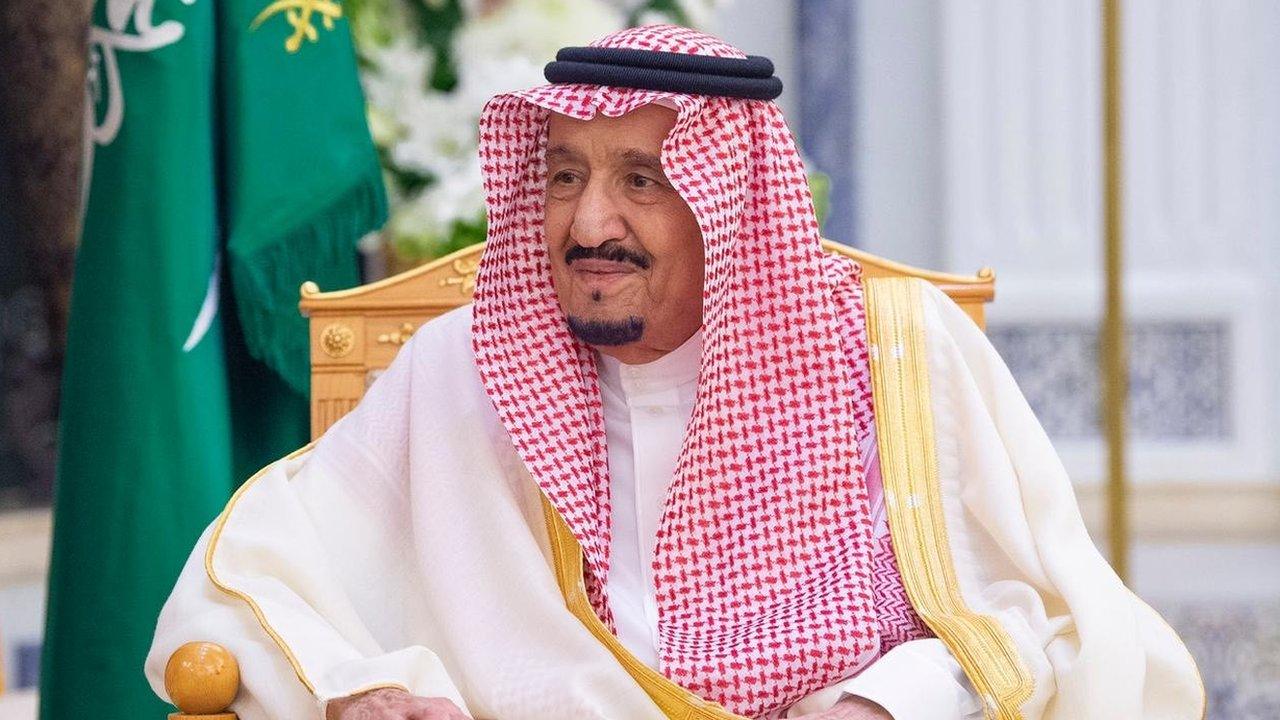
- Published23 January 2015
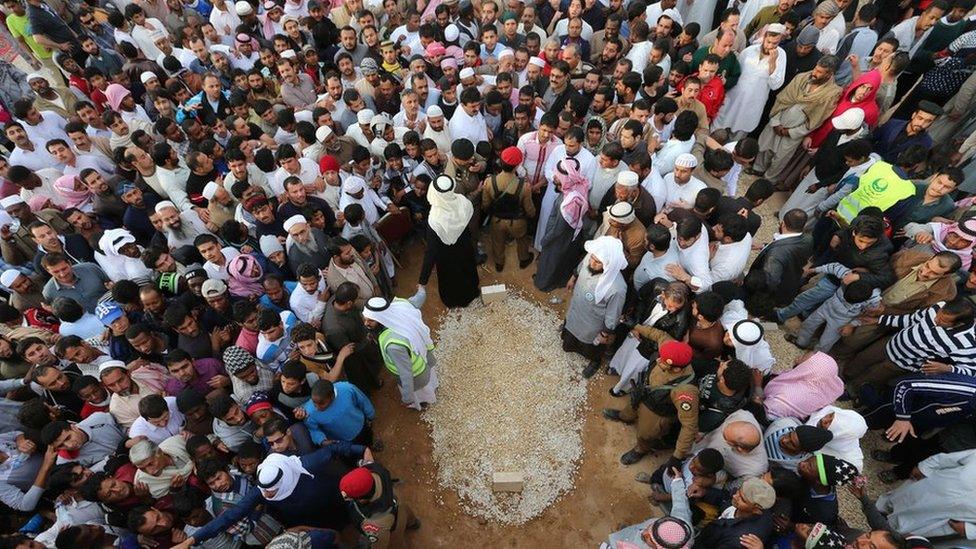
- Published23 January 2015
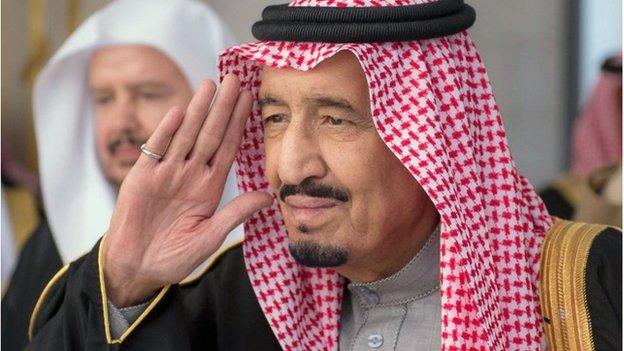
- Published23 January 2015
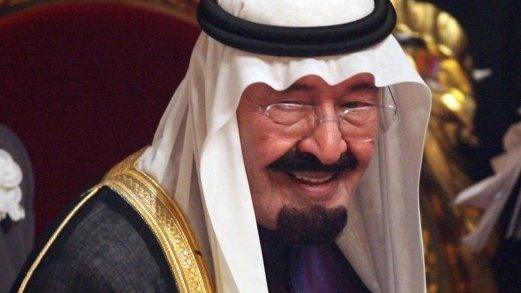
- Published23 January 2015
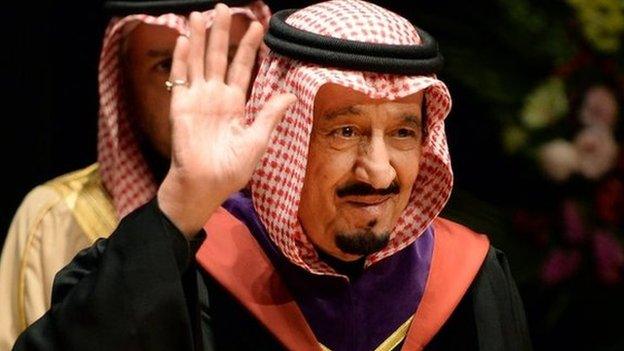
- Published23 January 2015
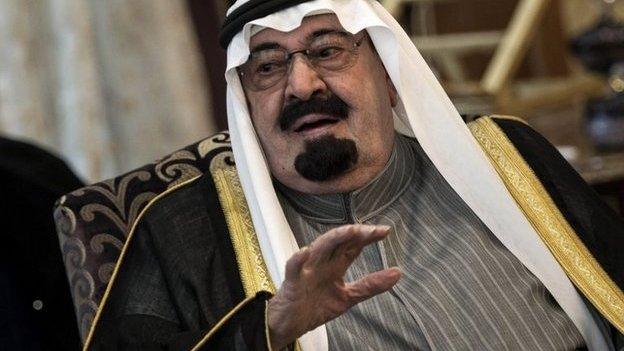
- Published23 January 2015
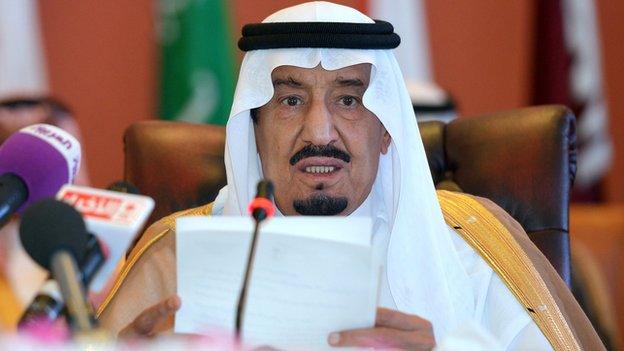
- Published23 January 2015
- Published23 January 2015
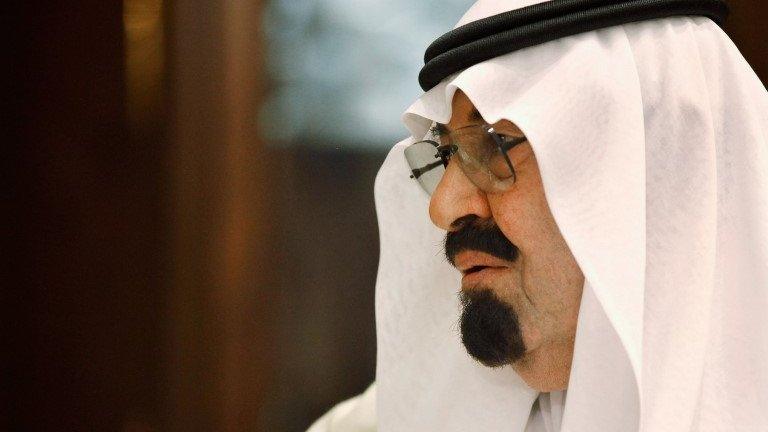
- Published30 May 2014
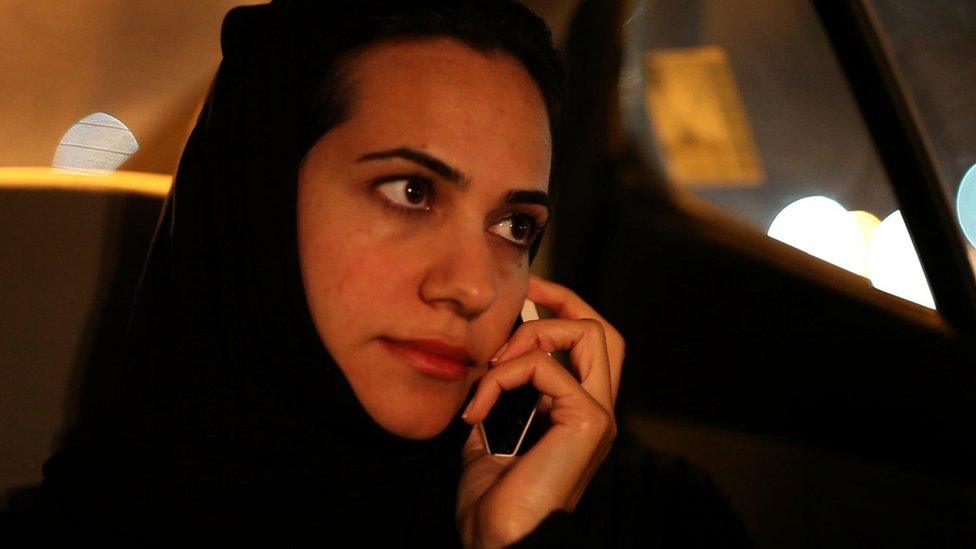
- Published29 August 2023
